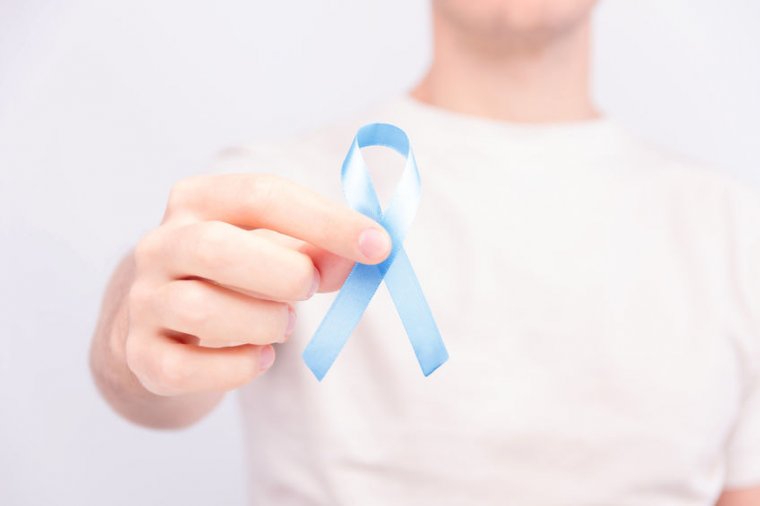
Prostate Cancer Sexuality
A Brief Overview (prostate cancer sexuality): After skin cancer, prostate cancer is the most common form of cancer diagnosed in men. In fact, one in six men is estimated to be diagnosed with prostate cancer in their lifetime (www.pcf.org). The prostate plays a role in the reproductive system and is nearby many other important organs like the bladder, rectum, urethra and seminal vesicles. The cancer or the treatment of the cancer can often impact men’s sexual function. Depending on the stage of the cancer, prostate cancer may require a prostatectomy which is the removal of the prostate. A “radical prostatectomy” includes not only the removal of the prostate but of the seminal vesicles and vas deferens. Sometimes surrounding tissue or other organs like the testes also have to be removed as well. Prostate cancer can also be treated with hormone therapy, radiation therapy or chemotherapy. Each type of treatment has different side effects that can impact a man’s ability and desire to engage in sexual activity. Below are some of the treatment options for prostate cancer and how they can impact sexual functioning:
Radical Prostatectomy - Prostate Cancer Sexuality: This type of treatment is usually used for early-stage prostate cancer. A radical prostatectomy can cause impotence and incontinence, however, newer techniques are reducing the likelihood of these issues occurring or being permanent. For instance, a nerve-sparing radical prostatectomy can reduce the chances of impotence and incontinence because neurovascular bundles are usually left intact. Another sexual side effect of this procedure is retrograde ejaculation, which is common if transurethral and transabdominal resections. If both the prostate and the seminal vesicles are removed, a man will experience “dry ejaculation” but can still experience orgasm.
Radiation Therapy - Prostate Cancer Sexuality: This treatment involves the implantation of radiation seeds or the use of an external radiation beam. Radiation therapy can be used in early stages of prostate cancer, but is typically used when the patient is not a good candidate for surgery or when the cancer has spread to surrounding tissues or organs. The size of the radiation field is usually a strong indicator of the level of sexual dysfunction that might occur. Radiation therapy can cause damage to the pelvic region, sympathetic nerves and the testes. It can also cause low testosterone levels, impotence, incontinence, issues with bowel function and ejaculatory pain.
Hormonal Therapy - Prostate Cancer Sexuality: When the cancer has metastasized, hormonal therapy is typically used to manage the disease. This treatment disrupts androgens, which the cancer uses to grow. In both surgical and pharmaceutical methods of hormonal therapy, testosterone is decreased. Sexually related side effects of hormonal therapy include decreased sexual desire, incontinence and impotence. Other side effects that may impact a person's ability to desire or engage in sex include hot flashes, vomiting, diarrhea, nausea, bone pain and cardiovascular issues.
Chemotherapy- Prostate Cancer Sexuality: Typically when prostate cancer is in a more advanced stage, chemotherapy is used. Common side effects of chemotherapy include hair loss, decreased appetite, nausea, vomiting, diarrhea, mouth sores, fatigue, decreased ability to fight infection and bruising more easily. Not all men who undergo chemotherapy experience sexual side effects. However, sexual side effects that can occur with men undergoing chemotherapy include difficulty achieving or maintaining erection, difficulty climaxing, less intense orgasms, pain during sex and loss of interest during sex.
Things to Keep in Mind about - Prostate Cancer Treatment:
- A combination of the above therapies may be used.
- New treatments and medications may be available so check with your Dr.
- While there are negative side effects, the most important thing is the most effective treatment is used for your specific case.
- Some side effects are temporary, not all are permanent so check with your Dr.
- For sexual side effects that are permanent, check with your Dr. to see if pharmaceuticals, penile implants or vacuum devices could help with your specific issue.
- Because sexual dysfunction also increases with age, make sure to determine with your Dr. if the sexual dysfunction is purely from prostate cancer and treatment, or if age-related issues could also be impacting your sexual functioning.
- Anxiety, pain, and discomfort talking about sexuality can all harm your sex life, working with a sex therapist who has knowledge about your particular type of cancer and experience in couples counseling can dramatically help you adjust to your new situation and maximize your sexual functioning.
Once - Prostate Cancer Treatment is Over, Remember That…
- Your body needs time to heal. Likely you will have less energy and less desire for sex until your body stabilizes. Full recovery often takes 6 months to a year after cancer treatment has stopped.
- Relationship roles have changed during your treatment. These role changes can both positively and negatively impact a romantic relationship. Make sure to examine how they could possibly be impacting your intimate relationship.
- Body image issues are common. Undergoing surgery and/or hormonal or chemotherapy treatments cause not only evident changes in your physical appearance but change the way you see your body. Some of these changes may be permanent. Accepting your new body and learning to maximize its abilities may be a task at hand.
- Low levels of anxiety about the changes are common. Anxiety has the potential to increase or decrease sexual connection and satisfaction.
- You and your partner may need to “get used to” each other in a sexual way again, especially if treatment greatly limited your ability or decreased your sexual desire for a significant amount of time. You or your partner may feel awkward, resentful, frustrated or even scared about reestablishing a sexual connection again. It will likely take time and energy to redefine and build your sexual relationship.
- When focusing on sensations, as opposed to orgasm, good sex for all survivors of cancer is possible.
